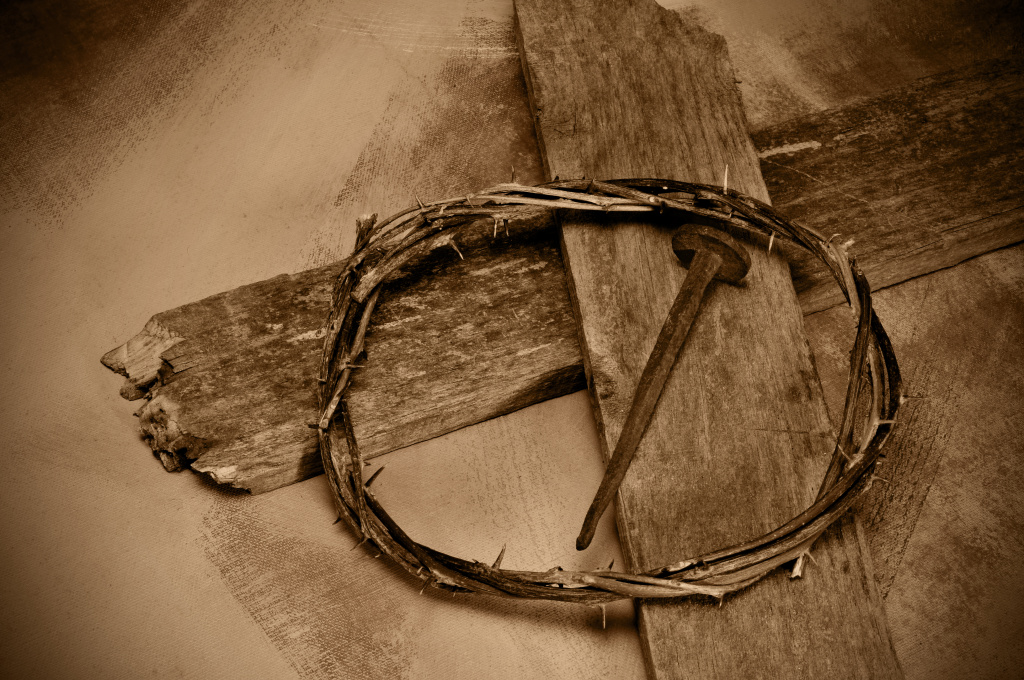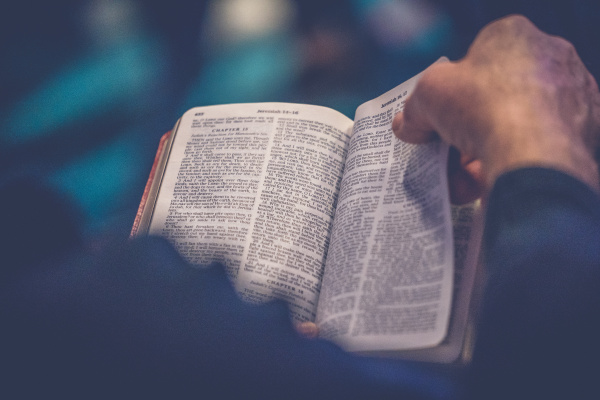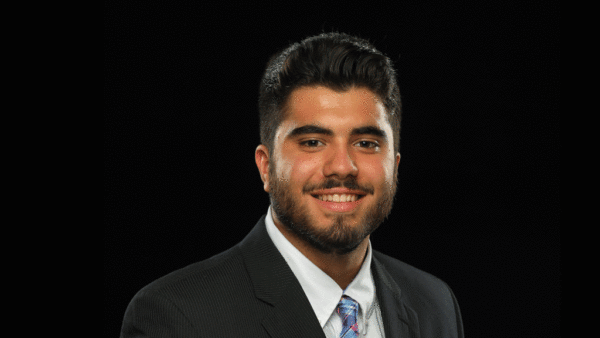Five hundred years ago a German monk nailed ninety-five theses on a church door. What’s the big deal? You might wonder, “Are all these celebrations really necessary?”
In order to understand why the Reformation was needed (and why it is certainly worthy of celebration), we must understand something about Luther’s world.
He grew up in an area where many people lived a difficult life often confronted with terrible violence. A world where peasants sometimes fought for food with knives and clubs. Many who were homeless would be pushed from one country to another—the outcasts of society. Luther lived in a day when physical or mental handicap would likely result in homelessness and often early death. Many in his day were killed by the plague.
If that sounds bleak, it’s not nearly as dark was the religious situation of Luther’s day. The Roman Catholic Church dominated everything, calling for the worship of saints, veneration of relics, indulgences and painstaking pilgrimages. Luther grew up in complete and total religious darkness.
You’ve no doubt heard about Luther’s lightning episode where he vowed to become a monk. Throughout his life, he was an over-achiever, saying later that if anyone could get to Heaven by being a monk, he would have done it. But it was all empty … until he came to Romans 1 and read about a righteousness not his own. An imputed righteousness from God alone.
Luther began to make the audacious claim that people should read the Bible, believe the Bible and interpret the Bible literally. In His providential timing, God sent this man, this revolutionary thinker. Simultaneously, God raised up revolutionary new technology called the movable-type printing press. This new technology allowed Luther’s profuse writings to be widely disseminated. Of course the Roman Catholic Church didn’t take Luther’s objections in stride. Luther lived much of his life as a wanted man—dead or alive. And yet many rallied around him and loved him, and he became something akin to a historical superstar.
God used Luther and the other Reformers remarkably to challenge a religious empire with biblical truth.
Luther of course didn’t want any credit; he wrote,
“I simply taught, preached, wrote God’s Word; otherwise I did nothing. And then, while I slept … the Word so greatly weakened the papacy that never a prince or emperor did such damage to it. I did nothing. The Word did it all.”
And the Word brought to the forefront the Five Solas of the Reformation. You could summarize all five this way: Scripture (alone) teaches that we are saved by grace (alone) through faith (alone) in Christ (alone) to the glory of God (alone).
This is the Reformation.
In this post, we focus on Solus Christus – Christ Alone.
Michael Reeves writes,
“…the center, the cornerstone, the jewel in the crown of Christianity is not an idea, a system or a thing. . . . It is Jesus Christ.”¹
Christianity is all about Christ.
Look at Romans 3:21–26:
“But now the righteousness of God without the law is manifested, being witnessed by the law and the prophets; Even the righteousness of God which is by faith of Jesus Christ unto all and upon all them that believe: for there is no difference: For all have sinned, and come short of the glory of God; Being justified freely by his grace through the redemption that is in Christ Jesus: Whom God hath set forth to be a propitiation through faith in his blood, to declare his righteousness for the remission of sins that are past, through the forbearance of God; To declare, I say, at this time his righteousness: that he might be just, and the justifier of him which believeth in Jesus.”
Luther scribbled this note in the margin of his Bible at these verses: “The chief point, and the very central place of the Epistle, and of the whole Bible.”²
These verses follow Paul’s myriad of Old Testament quotations painstakingly proving that the whole world (Jew and Gentile) is guilty before God. Paul shows that those who stand before the Sovereign of the Universe with shut their mouths (Rom 3:19). But here Paul transitions from the bad news to the good news. There is a way for guilty people to be declared righteous in God’s sight – even though those guilty people can never perfectly keep the law.
How can an unrighteous person be declared righteous by a righteous God?
The key word in the book of Romans is righteous—the Greek word occurs dozens of times. In Romans, Paul asks (and answers) how a God who’s entirely righteous can let guilty people into Heaven.
What would we call a U.S. district court judge who continually let guilty people go free? We’d call him unjust. He’s not fair. He’s not righteous.
But Paul says that the righteous God devised a righteous means for guilty people to go free. How? By Jesus.
God gave us a substitute. Scripture does not picture a God who looks the other way from your sin, who gives you a little wink and a nod and lets you pass through the pearly gates. Scripture reveals an intensely righteous God who calls you out for your sin. An honest God who describes the level of your sin and guilt to a degree that you cower and blush. But that same righteous God is so infinitely loving that He chooses to offer the payment for you.
We could illustrate Romans 3:21–26 this way. You get fired from your job and in a fit of rage burn down your company’s building. It’s caught on security camera, and you are brought before a judge. He says you must spend your whole life in jail unless you can come up with the five million dollars to pay for the ruined building.
But what if the judge who righteously called you guilty and demanded from you a price you could never pay is also very loving? He steps out from behind the judge’s bench and takes off his judge’s robes and pulls out his checkbook. The just judge lovingly says, “I’m independently wealthy. And not because of anything you’ve done but because I set my love on you, here’s a check for five million dollars. If you accept it, you can go free.”
That is what God did for us in Christ alone. We needed forgiveness. We needed grace. We needed mercy, and we find it in Christ alone.
Recently I took my kids to Gatlinburg, and we sang many of our favorite songs (letting each child choose his/her favorite). We went through various songs on our drive, and one of the songs we kept coming back to that we’ve taught our kids since they were toddlers was “What Can Wash Away My Sin?”
“What can wash away my sin?
Nothing but the blood of Jesus;
What can make me whole again?
Nothing but the blood of Jesus.“Oh! Precious is the flow
That makes me white as snow;
No other fount I know,
Nothing but the blood of Jesus.
“This is all my hope and peace—
Nothing but the blood of Jesus!
This is all my righteousness—
Nothing but the blood of Jesus!”
Sometimes when I’m singing a song like that, I think, “What if my unsaved neighbor heard me singing a song like this?” They would think that was really weird—singing with little kids about blood! What’s that all about?
It’s because we believe in Christ alone! We glory in the cross because we recognize that it is Christ alone who saves us!
Where else could you find forgiveness?
Where else could you find mercy?
Who else would give you heaven when you deserve hell?
We need Christ alone!
So believe. There’s one way to God the Father—it goes straight through Jesus Christ. Be thankful for Christ’s work on the cross for you.
And share. People are walking in spiritual darkness. You have the truth that can set them free. Tell them about the hope of Christ alone!
The hardest sermon I ever preached was for my Dad’s funeral. I want to end with a few paragraphs from that sermon.
“If you didn’t know Dad and you found your way into this service, you might get the wrong idea. You might think that today we were honoring a great man. Here, after all, is a man who preached to thousands, and talked to presidents, and shared the Gospel with the nation on Good Morning, America. But if you thought that Dad was a great man, he would be the first to insist you had it all wrong.
“Today, we’re not honoring a great man, but his great God. Dad would be the first to tell you that he was just a redneck country boy from the hills of North Georgia. But a great and all-wise God saved that teenage boy from the pit of sin. A great and merciful God put His hand on that redneck country boy and did something remarkable with his life. Dad was not perfect. He had his flaws just like the rest of us.
“Those of us who knew him well, know that he did his best to practice what he preached. That he was quick to ask his friends and family for forgiveness. That he was absolutely passionate about the Gospel of Jesus Christ. Dad preached a lot of funerals, and he always gave the Gospel. The song that’s been playing over and over in my mind these past few days is the one that Brother DuBois just sang for us. ‘Give Me Jesus.’
‘‘And when I come to die, and when I come to die, give me Jesus.
“‘You can have all this world, but give me Jesus.’
“And when Dad came to die. When it was time for Dad to leave this fleeting world behind. When he breathed his last breath here on earth. When he left behind his pain-ridden, tumor-filled body and stepped from the temporal into the eternal, Dad had Jesus. And that was really all that mattered.
“Our hope today is not in Dad’s many accomplishments. Our hope is not in his artistic ability or his many talents, or his speaking ability. Our hope is in the bedrock reality that Dad knew Jesus. He was in Christ. When Dad breathed his last breath on this earth, it was for him instant Heaven.”
As the songwriter so beautifully puts it,
“No guilt in life, no fear in death—
This is the pow’r of Christ in me;
From life’s first cry to final breath,
Jesus commands my destiny.
No pow’r of hell, no scheme of man,
Can ever pluck me from His hand;
Till He returns or calls me home—
Here in the pow’r of Christ I’ll stand.”
¹ Rejoicing in Christ, 10
² Cited in Douglas J. Moo, The Epistle to the Romans, NICNT (Grand Rapids: Eerdmans, 1996), 242
This article was originally published on Life to Life and is an adaptation of a message preached in chapel by Nathan Crockett on Tuesday, Oct. 24, 2017.








